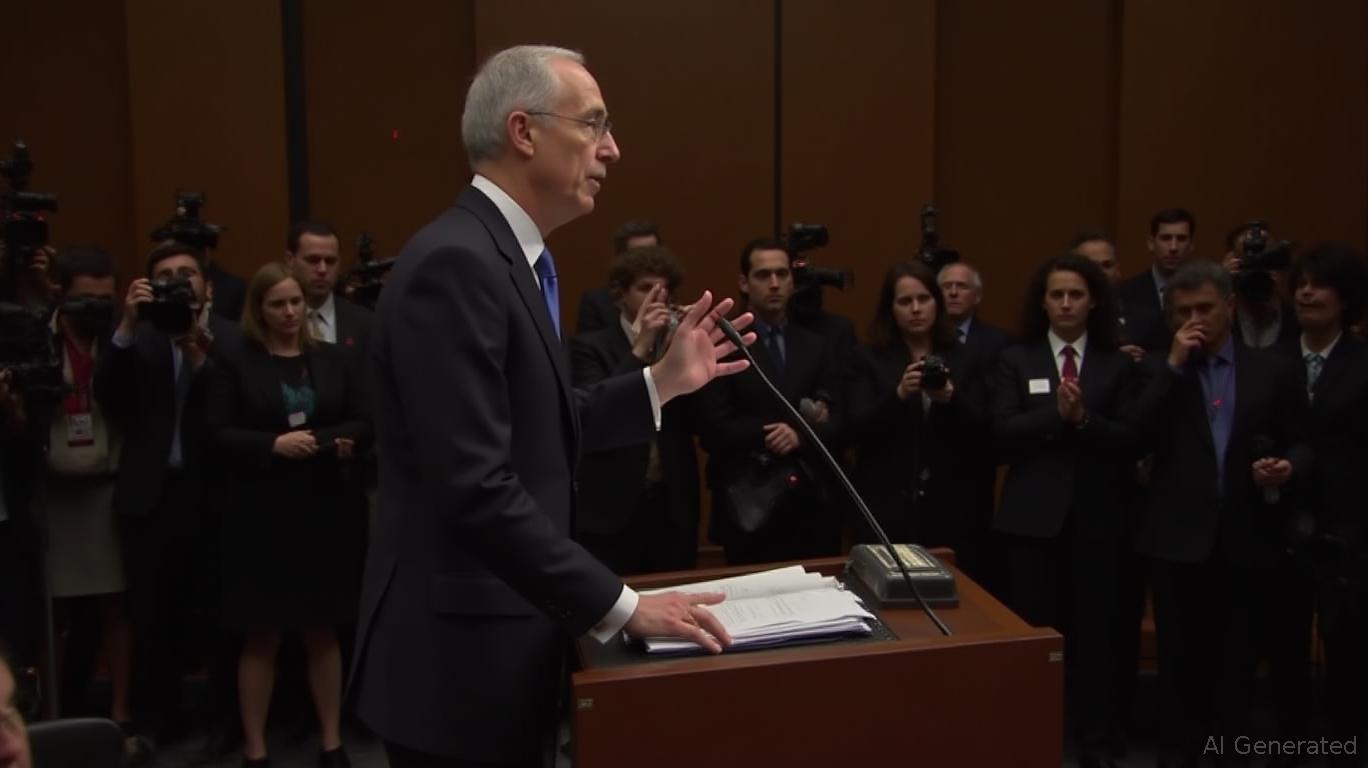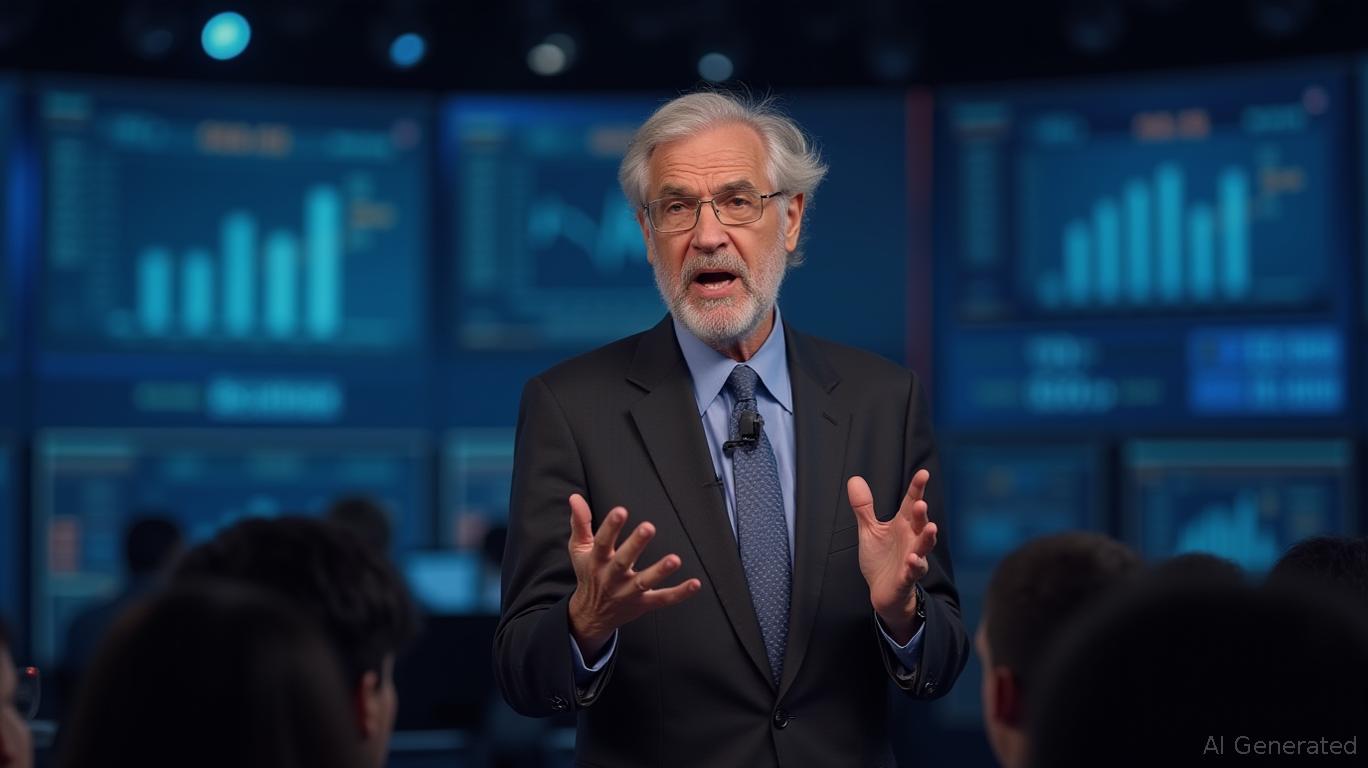U.S. and China Hold Trade Negotiations in Kuala Lumpur to Prevent Escalation and Extend Ceasefire
- U.S.-China high-level trade talks resumed in Kuala Lumpur, 2025, aiming to avert a trade war ahead of potential Trump-Xi APEC summit discussions. - Negotiations focused on agricultural trade (U.S. soybean imports to China dropped to zero in September 2025), rare earth export controls, and semiconductor tariffs. - Malaysia's neutral role highlighted its diplomatic influence, with U.S. officials acknowledging its strategic value in stabilizing trade ties amid unresolved issues like Hong Kong's Jimmy Lai de
From October 24 to 27, 2025, senior officials from the United States and China reconvened in Kuala Lumpur, Malaysia, for high-level trade discussions. These talks were intended to ease rising economic frictions ahead of a possible meeting between President Donald Trump and President Xi Jinping at the APEC summit in South Korea. U.S. Treasury Secretary Scott Bessent and Chinese Vice Premier He Lifeng led the delegations, focusing on contentious issues such as agricultural trade, rare earth export restrictions, and tariffs on semiconductors. Taking place alongside the ASEAN Summit, the negotiations highlighted both countries’ intent to prevent further conflict as a temporary trade ceasefire is set to lapse on November 10, according to a
Agricultural trade continues to be a major obstacle. In September 2025, U.S. soybean shipments to China dropped to zero for the first time since November 2018, a result of reciprocal tariffs and China’s pivot to other suppliers like Brazil and Argentina. While China’s total soybean imports reached 12.87 million tons in September—the second-highest ever—American farmers have faced heavy losses. Trump has described the soybean issue as a negotiation strategy by China, whereas Beijing stresses the importance of reducing trade barriers, the ukragroconsult report notes.

The discussions also covered China’s new limits on rare earth exports, which the U.S. claims could disrupt global supply chains for technology and defense. In response, the U.S. has initiated a Section 301 investigation into China’s adherence to the 2020 Phase One trade deal, alleging that Beijing has not fulfilled its promises on market access and purchasing U.S. products. The Trump administration has warned of possible retaliatory actions, including imposing a 100% tariff on Chinese imports if the dispute worsens, according to an
Malaysia’s selection as a neutral location underscored its increasing diplomatic role in facilitating dialogue between the U.S. and China. Prime Minister Anwar Ibrahim reiterated Malaysia’s dedication to encouraging talks, while American officials recognized Kuala Lumpur’s strategic importance in maintaining stable trade relations. The city’s robust semiconductor industry further emphasized its significance, as both countries aim to secure supply chains for electric vehicles and consumer electronics, as highlighted in a
By the second day, U.S. Trade Representative Jamieson Greer reported that progress had been made toward arranging a “productive meeting” between Trump and Xi, with topics including soybean trade, Taiwan, and Hong Kong. However, China has not yet confirmed the leaders’ meeting, and unresolved matters—such as the detention of Hong Kong media figure Jimmy Lai—remain significant. While a preliminary deal could lead to an extension of the trade truce, experts warn that any agreement is fragile given ongoing geopolitical tensions, according to
These negotiations occur as the U.S. intensifies efforts to address China’s trade practices, with groups like the American Primary Aluminum Association backing the Section 301 investigation. Industry representatives argue that China’s failure to comply with the Phase One agreement has damaged U.S. manufacturing, calling for stricter enforcement of trade policies, according to
If these disputes are not resolved, the risk of a deeper trade conflict looms, potentially impacting the global economy. On the other hand, reaching a compromise could bring significant benefits to American agriculture and help stabilize food markets, as Fortune observes. The results of the Kuala Lumpur negotiations are expected to influence the future direction of U.S.-China relations, with effects extending well beyond bilateral trade, the ukragroconsult report concludes.
---
Disclaimer: The content of this article solely reflects the author's opinion and does not represent the platform in any capacity. This article is not intended to serve as a reference for making investment decisions.
You may also like
Hyperliquid News Today: Noomez's Open Presale Challenges the Speculative Frenzy in Crypto
- Noomez ($NNZ) introduces a 28-stage presale with on-chain burns and verifiable progress tracking to build long-term value in a volatile crypto market. - Its fixed 280B token supply and escalating price curve aim to create scarcity, with milestone events triggering additional burns and airdrops. - The project’s ecosystem-centric model, offering up to 66% APY staking rewards, aligns with investor demand for utility-driven crypto projects. - Despite liquidity and regulatory risks, KYC-verified founders and

Dogecoin News Update: Layer Brett's DeFi Advantage Draws Investors While Dogecoin Faces Setback
- REX-Osprey DOGE ETF, the first U.S. spot ETF for Dogecoin (DOGEUSD), launched on September 18, 2025, attracting institutional investors. - Dogecoin faces $0.20–$0.21 resistance after a 16% monthly decline, pushing investors toward Layer Brett (LBRETT) as an alternative. - Layer Brett, an Ethereum-based meme-DeFi hybrid, offers staking rewards, low fees, and 600% annualized returns, drawing crypto enthusiasts. - With $4.4M in funding and 10B tokens, Layer Brett combines utility and community incentives, p

Krugman Cautions That AI-Fueled Expansion May Widen Inequality and Deepen Economic Disparities
- Nobel laureate Paul Krugman warns the U.S. economy faces "abnormal" challenges, including AI-driven inequality, stagnant employment, and deepening polarization. - He highlights three key issues: sectoral divides from AI growth, an "employment freeze" with limited job access, and K-shaped growth favoring high-income groups. - Krugman criticizes delayed data releases and urges policy reforms to address systemic imbalances, as global trade tensions and Trump-era tariffs complicate economic stability. - His

BNB News Update: As BNB Levels Out and AVAX Declines, Crypto Investors Turn Their Attention to MoonBull
- BNB stabilizes above $1,100 amid Kyrgyzstan's BNB-backed stablecoin/CBDC partnership with Binance's CZ, while MoonBull ($MOBU) emerges as a high-ROI altcoin focus. - MoonBull's presale model offers 9,256% projected ROI through 23 price stages, 95% APY staking, and deflationary mechanics (liquidity, reflections, burns) to drive scarcity. - T. Rowe Price's $1.51T asset manager's crypto ETF filing signals institutional adoption, contrasting with AVAX's 14.85% monthly decline and bearish indicators. - $MOBU'
